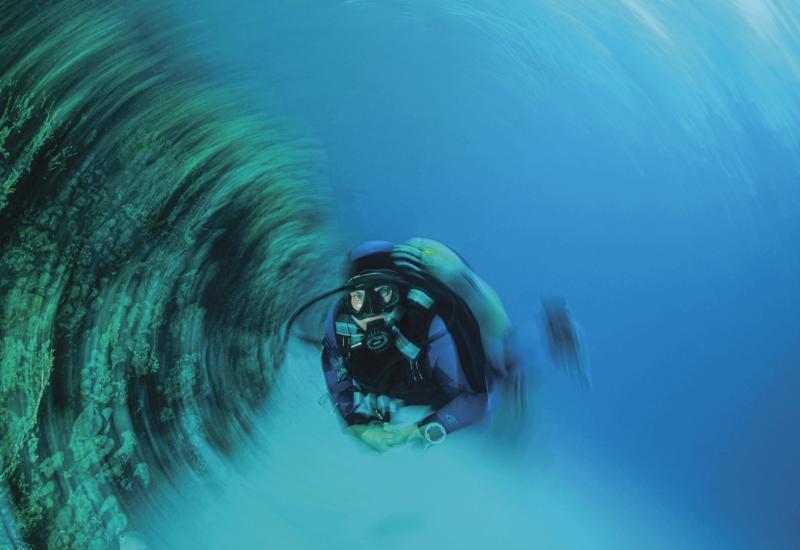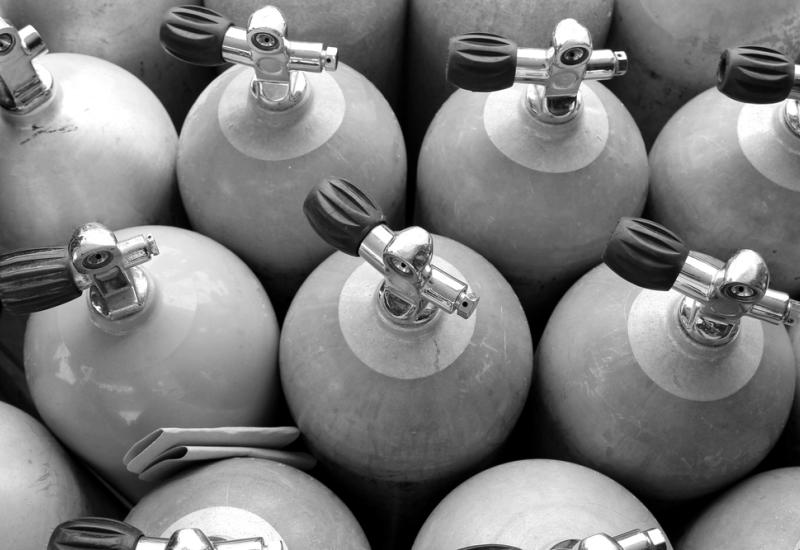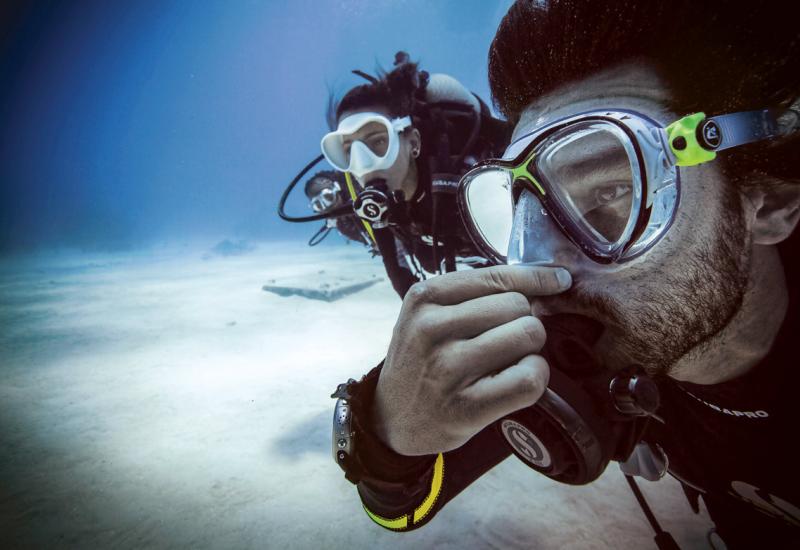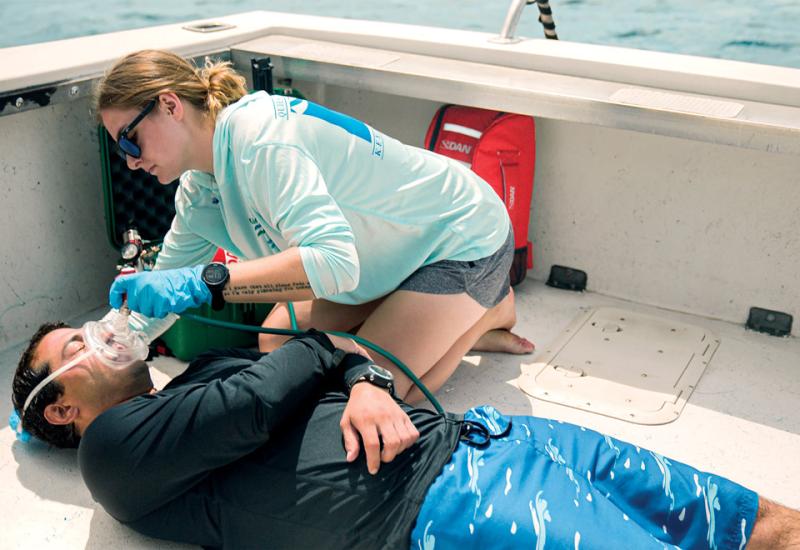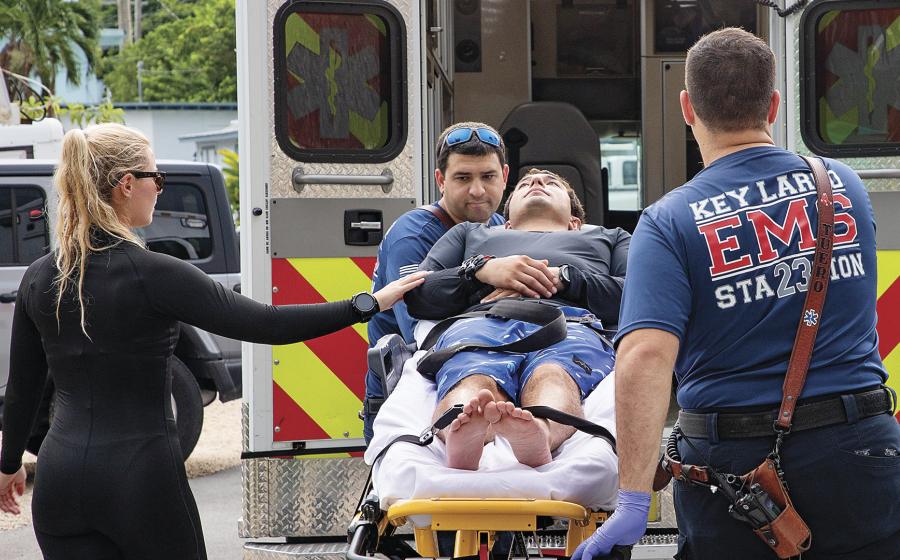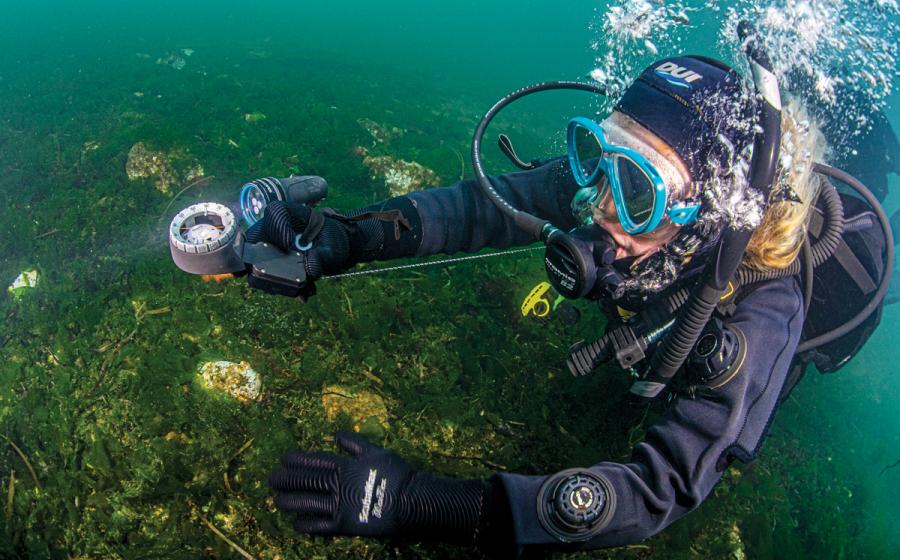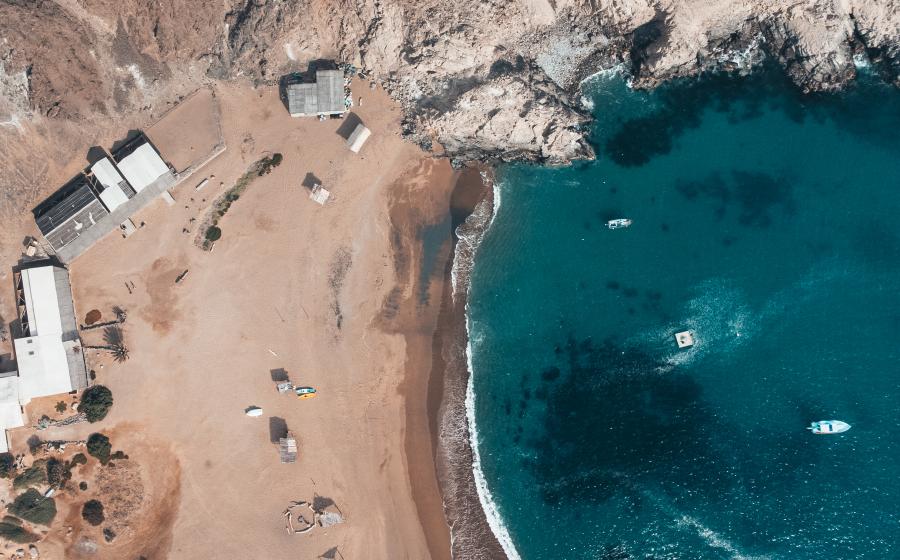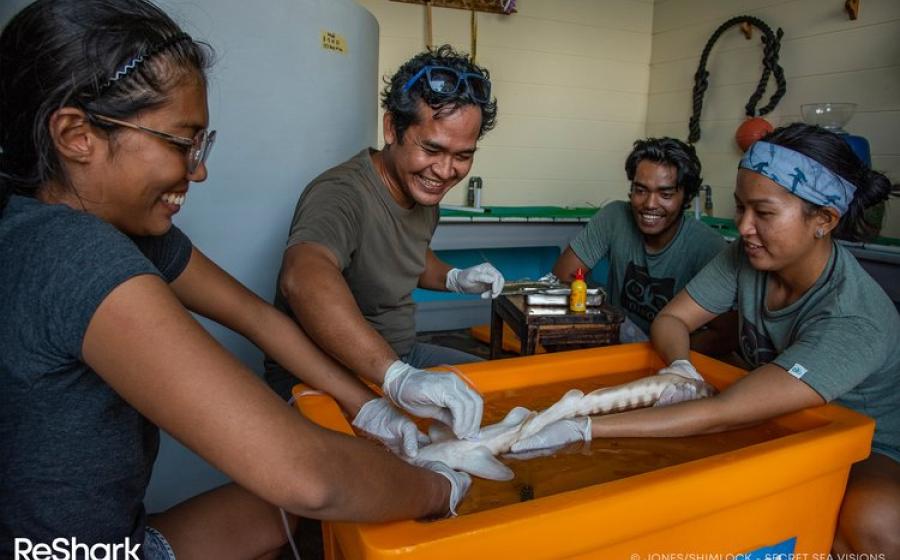Dive Accident Insurance: What You Need to Know
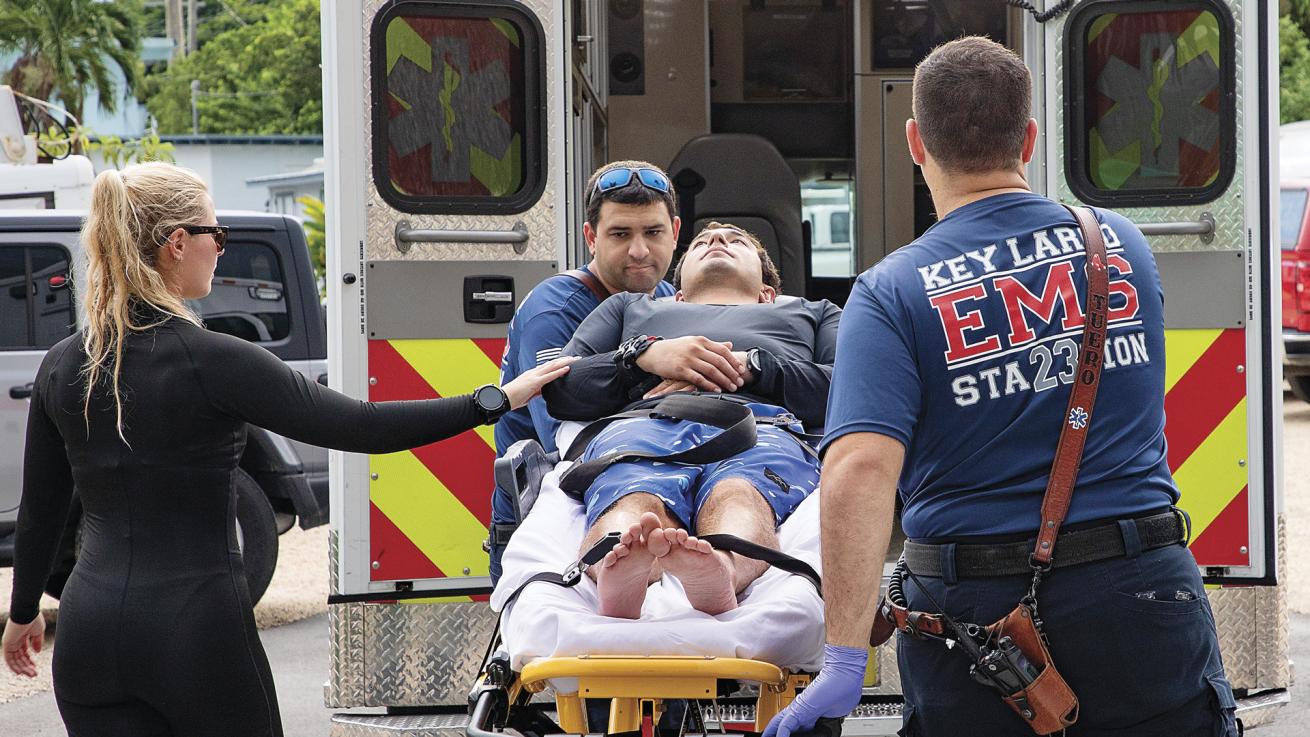
Courtesy Divers Alert Network
As I ran down my to-do list for my next dive trip, I paused at the last bullet point: dive accident insurance. I know that diving is both an exciting adventure and refreshing experience, but accidents can happen even to the most confident divers. With insurance, I know that should I be injured on a dive, I can focus on my recovery without worrying about the financial burden of proper care.
WHAT IS ACCIDENT INSURANCE?
Prompt medical evacuation, care from a physician specialized in dive medicine, and hyperbaric treatments can quickly add up to tens of thousands of dollars. To make matters worse, general health insurance and standard travel insurance often exclude injuries sustained while diving. Even in cases where coverage is offered, policies may have additional limitations, such as the maximum depth you can dive to. These coverage gaps can make access to proper care prohibitively expensive and add extraordinary stress during an already distressing experience.
Related Reading: Ask DAN: Can I Return to Diving After Surgery
Fortunately, many affordable options for dive accident insurance can provide coverage for the gaps left by typical insurance. Some dive accident policies may even provide benefits in addition to medical coverage, such as search and rescue, extra accommodations/travel, and replacement of dive gear that was lost or damaged in an accident.
WHAT SHOULD I LOOK FOR IN AN INSURANCE POLICY?
Your dive insurance coverage should reflect your unique lifestyle. To choose the best option, first assess your diving habits and needs by considering the following questions:
1. How often do you dive? Frequent diving may warrant an annual plan over a trip-by-trip option to maximize value while maintaining simplicity.
2. What type of diving do you enjoy? More advanced diving in remote locations may warrant a plan with higher coverage limits or additional benefits such as search and recovery.
3. Where do you plan to travel? Make sure that the plan you choose covers the areas you plan to visit. Also consider evacuation and repatriation benefits if you plan on exploring far from home.
4. What additional benefits do you want? There are many perks that may benefit you outside of medical treatment, such as dive equipment replacement, trip cancellation protection and nondiving accident coverage. Some organizations have additional services such as dive planning resources, physician referral networks and educational offerings outside of dive accident insurance.
Sign up for PADI Club to receive Divers Alert Network benefits, including a free DAN Prepared Diver course.
Once you have narrowed your options down to what suits your diving needs best, it is time to take a closer look at the fine print, so you know exactly what is being offered. Navigating the terms and conditions may seem daunting, so I highly recommend reaching out directly to an insurance representative who can explain the nuances of their plan and answer any questions you may have. Working directly with an insurance provider ensures that you can pick a plan that is optimal for your needs.
“General health insurance and standard travel insurance often exclude injuries sustained while diving. Even in cases where coverage is offered, policies may have additional limitations.”
Also take this time to evaluate how smooth communication is between you and the insurance provider. Reputation, track record and personal experiences can provide you with clues to what you may expect should you ever need assistance. A supportive and understanding team can make a world of difference if an emergency comes up!
Now that you have purchased your dive accident insurance, it is time to plan your dive trip! Don’t forget to remind your dive buddies to also review their coverage. Your group will be able to rest easy knowing that you are covered in the event of an emergency.

